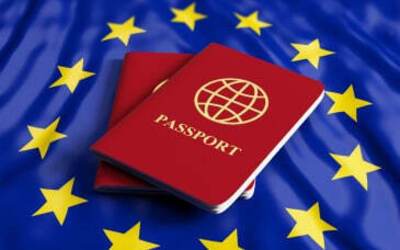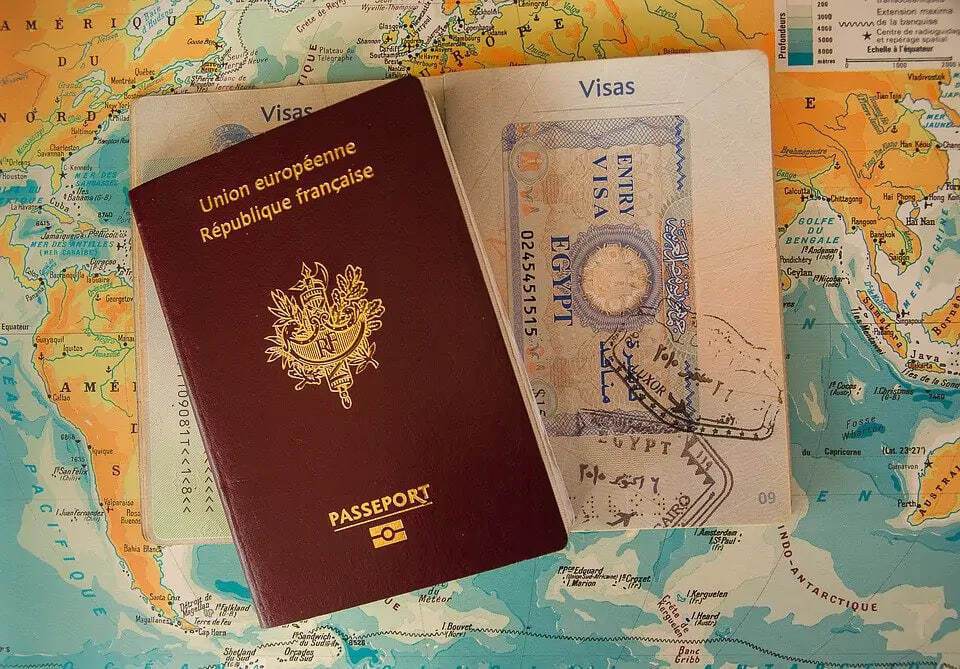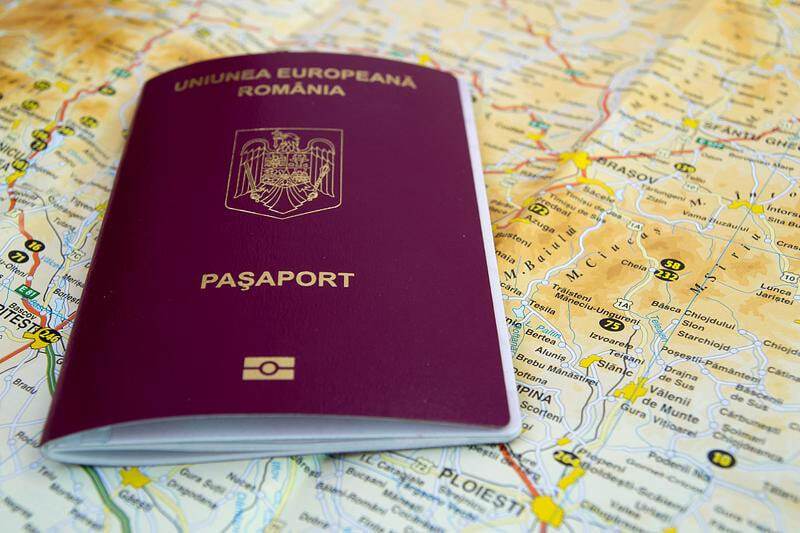European Union Passport: A Goal for Many, but Often Surrounded by Misconceptions. What Truly Lies Behind the Myths of EU Citizenship, and How Can One Avoid False Expectations?
Fraudsters exploit legal loopholes, offering simplified procedures for restoring EU passports through ancestral documentation. Illegal offers range from €3,000 to €10,000, but such deals carry a high risk of criminal prosecution and reputational damage. Besides these schemes, there are numerous myths about obtaining an EU passport.
We are aware of the five most common misconceptions that frequently arise in client inquiries, articles, and forums, and we are ready to dispel them based on our experience.
The Myths About Obtaining a European Passport That We Most Often Encounter in Our Practice
Myth №1: You Can Buy Citizenship in Any EU Country
It is a common misconception that citizenship in any EU country can be obtained simply by paying money.
In reality, this is not the case. In recent years, European countries have significantly tightened their immigration regulations and investment requirements. Only a few countries offer citizenship or residency through investment programs, and these often involve rigorous due diligence checks.
Malta is one of the few countries where EU citizenship can be obtained through exceptional investments. To do so, a minimum of €610,000 is required, which includes a €600,000 investment in the National Development Fund, a €10,000 charitable donation to a non-governmental organization, and the rental of property costing at least €16,000 for one to three years. Investors are also subject to strict due diligence, including a thorough examination of their source of funds and the absence of criminal records or law enforcement issues in other countries.
Additionally, several other EU countries offer residency-by-investment programs, such as Portugal, Spain, or Greece. Through these programs, individuals can obtain residency by investing in real estate or business ventures. While these programs provide the opportunity to live and work in the EU, additional requirements must be met to qualify for citizenship.
Reality: You cannot obtain citizenship in any EU country simply by paying money. Malta offers citizenship through significant investments, but in most countries, only residency-by-investment programs are available, such as in Portugal, Greece, Spain, and others.
Myth №2: An Investor’s Money Can Be Taken Without Issuing a Passport
Any demands for upfront payment before submitting documents to the citizenship commission should raise serious concerns, as this is most likely a sign of a fraudulent scheme.
Investment citizenship programs are strictly regulated by governments and governed by specific legislative acts. Under these programs, investors are required to provide funds only after their citizenship application has been submitted to the relevant government department and the due diligence process has begun.
The process of obtaining citizenship through investment includes a thorough review not only of the funds but also of the investor’s reputation. If the applicant has a criminal record or if their capital comes from dubious sources, citizenship will be denied, regardless of the funds provided. This highlights how seriously governments take the vetting of applicants seeking citizenship through investment.
Reality: Investment citizenship programs are government-controlled and legally regulated. Funds should only be submitted after the application is filed and due diligence checks have commenced. Requests for upfront payment before applying for citizenship may indicate fraud.
Myth №3: You Will Have to Renounce Your First Citizenship and Pay Taxes in Both Countries
There is a common misconception that when obtaining a second citizenship through investment programs, a person is automatically required to renounce their original citizenship and is faced with the obligation to pay taxes in both countries.
In reality, it’s much simpler and depends on the laws of each country.
- The Difference Between Second Citizenship and Dual Citizenship
Second citizenship allows a person to retain their original citizenship without the need for renunciation. In most countries offering investment programs, acquiring second citizenship is fully recognized without requiring the applicant to give up their first passport. For example, Malta and Greece do not require their new citizens to renounce their previous citizenship, allowing individuals to retain all the rights and privileges associated with their original nationality.
- Taxation with Dual Citizenship
Tax obligations for dual citizenship are governed differently. Taxation depends on where you are a tax resident, not the number of citizenships you hold. This means that you will pay taxes in the country where you spend the majority of your time and are officially registered as a tax resident. Holding two citizenships does not require you to pay taxes in both countries unless you are conducting active economic activities in both jurisdictions.
Reality: The process of obtaining second citizenship is much more flexible and convenient than it might initially appear. The ability to keep your original citizenship and avoid double taxation makes investment programs an attractive option for those looking to expand their international opportunities without unnecessary legal and financial complications.
Myth №4: A Fake Marriage
Some believe that entering into a fake marriage with an EU citizen is a simple and quick way to obtain a passport. In reality, this is a complicated and risky path.
A fake marriage is a legally fraudulent union entered into solely for the purpose of obtaining citizenship. In many EU countries, government authorities thoroughly scrutinize marriages, especially when one spouse is applying for citizenship. These checks include interviews, documentary evidence, and even home visits to ensure the authenticity of the relationship.
If a fake marriage is discovered, it can lead to severe consequences: denial of citizenship, revocation of an already obtained passport, fines, and even criminal charges for both the applicant and the EU citizen. Additionally, the violator may face entry bans or even deportation from the country.
Reality: A fake marriage is not a reliable way to obtain EU citizenship. On the contrary, it can lead to serious legal issues and destroy any hopes of acquiring a European passport.
Myth №5: Ancestry from the EU Guarantees Citizenship
There is a common misconception that having ancestors or distant relatives from a particular country automatically entitles one to citizenship in that country. For example, many believe that simply proving familial ties to citizens of Romania, Slovakia, or the Czech Republic is enough to obtain a passport without any additional requirements.
However, in reality, the process of obtaining citizenship based on ancestry is much more complex. Even if you can prove that you have ancestors from a particular country, there are several legal and administrative requirements that must be fulfilled:
- Documentary Proof: You must provide official documents confirming your familial ties to citizens or ancestors of the country. This could include birth certificates, marriage certificates, or other documents proving your lineage.
- Legal Conditions: Even with evidence of ancestry, you must meet the legal requirements of the country to obtain citizenship. This could involve background checks for criminal records, language proficiency, or fulfilling other criteria.
- Application Process: Obtaining citizenship through ancestry requires submitting an official application and undergoing a verification process, which can be lengthy and complicated. Simply having ancestors from the country is not enough.
Reality: Ancestral ties do not automatically grant citizenship. To obtain a passport based on ancestry, specific conditions must be met, and official procedures must be followed in each country.
Stop Believing in Myths!
Get a free personalized consultation from Migronis experts and discover the real opportunities for obtaining second citizenship or residency through investment. Our specialists will help you navigate the details of the programs and find the best solution for your family.
The Cyprus "Golden Passport" Scandal
Investment citizenship programs can be very attractive, but they often become the center of scandals. According to the Cyprus News Agency, one such incident occurred in Cyprus, where eight people, including former Transport Minister Marios Demetriades, were accused of corruption and money laundering. On August 30, 2024, a criminal case related to "golden passports" was registered in Nicosia's criminal court. These charges are linked to the illegal naturalization of foreign millionaires through the "golden passport" program.
This case highlights that even at the highest levels, fraudulent schemes are possible. To avoid such situations and minimize risks, it is recommended to consult expert agencies that strictly monitor the processes of obtaining citizenship and residency, ensuring their legitimacy and transparency. Migronis, with many years of experience and proven methods, guarantees security and confidence in the legality of the procedure. Qualified specialists will help avoid mistakes and prevent falling for fraud in such a critical process as obtaining second citizenship.
Who Can Obtain EU Citizenship and What Does It Offer?
Foreign nationals can obtain EU citizenship if they can prove financial stability and have no legal issues. However, becoming a citizen of Spain or Greece, for example, is not an immediate process. Applicants must go through naturalization, repatriation, or special merit and investment programs. Naturalization in the EU typically requires residency in the country for 8 to 10 years for reasons such as education, real estate investment, business, employment, or marriage to an EU citizen.
EU citizenship opens up numerous opportunities and advantages. Here are 9 key reasons why many investors seek to obtain a European Union passport:
- Freedom of Residence: EU citizens can live and settle in any EU country, including Germany, Portugal, Spain, and others.
- Work and Business: EU citizens have the right to work and conduct business across Europe, which is particularly relevant for those looking to access the European market or relocate for employment.
- Visa-Free Travel within the EU and Schengen Zone: EU citizenship allows free movement between most European countries without the need for visas or additional bureaucracy.
- Visa-Free Access to Over 150 Countries Worldwide: An EU passport facilitates travel globally, including to countries like Japan, Hong Kong, and Singapore.
- Property Ownership in the EU: Citizenship opens up the possibility of purchasing real estate in any of the 27 EU countries, including desirable areas like Portugal’s coastline.
- Social Protection: An EU passport provides access to pensions and benefits, offering financial security.
- Education for Children: Children of EU citizens can easily enroll in and attend prestigious universities across Europe.
- High-Quality Healthcare: European countries are known for their excellent healthcare systems, ensuring top-tier medical services.
- High Quality of Life and Safety: Some of the world's safest and most comfortable cities are in Europe, with developed infrastructure and a healthy environment.
These advantages make the European passport desirable for many, and the question remains: how to obtain it quickly and efficiently. Let's consider the legal ways to obtain citizenship in Europe.
The government of any EU country reserves the right to refuse a passport without explanation. Seek the help of qualified lawyers who can assist in obtaining citizenship in a European country.
How to Obtain European Citizenship: Legal Paths
Four ways to obtain an EU passport:
- Naturalization: Requires long-term residence in the country (5-12 years). First, you need to obtain a residence permit, which can be granted through work, study, business, or marriage to a citizen of the country. This process is lengthy and complex.
- Refugee Status: Suitable for those who can prove a real threat in their home country. This method may create issues back home and requires recognition of the threat by the host country.
- Repatriation: If you have close relatives in a European country, this may be a suitable option. However, there are strict conditions: relatives must be citizens, and in some countries, the requirements are specific to a historical period of residence.
- Investment Immigration: The fastest and most comfortable way to obtain an EU passport. Malta offers direct citizenship acquisition for investments starting from €690,000. A more affordable option is a residence permit in Portugal for investments starting at €200,000. After 5-10 years of living with a residence permit, you can apply for citizenship. There are also residence programs in Spain, Greece, and Cyprus. These programs require financial investments but allow you to avoid long-term residence and language learning.
Want to Learn More?
Contact our expert for a free consultation and discover the real opportunities for obtaining second citizenship or residency through investment.
How to Obtain European Citizenship Through Investment
Several European countries offer passports or residence permits through investment. These include Malta, Cyprus, Portugal, Spain, and Greece. The conditions of their investment programs vary significantly, so let’s break down each case in detail.
Malta – Citizenship
The cost of EU citizenship in Malta starts from €610,000, which includes a donation to the National Development Fund and a charitable contribution of €10,000. Additionally, you must rent property for 1 or 3 years at €16,000 per year. If you prefer to purchase property, the total amount will be at least €1,300,000, including a €600,000 donation and a minimum of €700,000 for real estate. A Maltese passport provides visa-free access to over 187 countries.
Cyprus – Residence Permit
As of November 2020, Cyprus has suspended its citizenship-by-investment program. However, you can still obtain permanent residence (PR) with a minimum investment of €300,000. After 7 years of residency, you can apply for citizenship.
Spain – Residence Permit
In Spain, you can obtain a residence permit by investing in real estate, bonds, or starting a business with a minimum investment of €500,000. After 10 years, you can apply for citizenship, and the property can also provide additional rental income.
Greece – Residence Permit
To obtain a "Golden Visa" in Greece, you only need to purchase real estate worth €250,000. However, to apply for citizenship after 7 years, you must reside in the country continuously. The residence permit does not grant the right to work, and the economic situation may limit business opportunities.
Portugal – Residence Permit
The "Golden Visa" program in Portugal allows you to obtain a residence permit by investing at least €500,000 in funds, businesses, or creating jobs. Alternatively, you can donate €200,000 to the country's cultural heritage. The residence permit allows free travel within the Schengen zone, and after 5 years of residency, you can apply for citizenship.















